Filter by
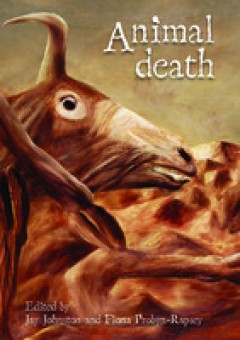
Animal death
Animal death is a complex, uncomfortable, depressing, motivating and sensitive topic. For those scholars participating in Human-Animal Studies, it is – accompanied by the concept of 'life' – the ground upon which their studies commence, whether those studies are historical, archaeological, social, philosophical, or cultural. It is a tough subject to face, but as this volume demonstrates, on…
- Edition
- -
- ISBN/ISSN
- 9781743325247
- Collation
- xv. :ill. ;351 p.
- Series Title
- -
- Call Number
- 179.3. JAY a
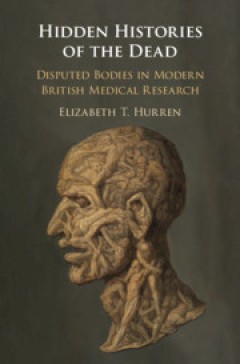
Hidden histories of the dead : disputed bodies in modern British medical rese…
In this discipline-redefining book, Elizabeth T. Hurren maps the post-mortem journeys of bodies, body-parts, organs, and brains, inside the secretive culture of modern British medical research after WWII as the bodies of the deceased were harvested as bio-commons. Often the human stories behind these bodies were dissected, discarded, or destroyed in death. Hidden Histories of the Dead recovers …
- Edition
- -
- ISBN/ISSN
- 9781108633154
- Collation
- xvii, 322 p. ; ill
- Series Title
- -
- Call Number
- 174.20941 HUR h
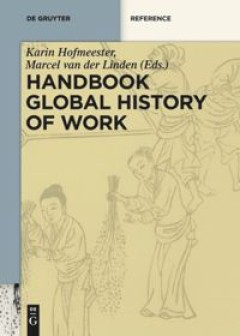
Handbook the global history of work
What is the day-to-day reality for workers in various parts of the world, and how was it in the past? How do they work today, and how did they work in the past? Did workers ever protest? If so, how? These and many other questions comprise the field of the global history of work - a young discipline that is introduced with this handbook.
- Edition
- -
- ISBN/ISSN
- 9783110424584
- Collation
- vii, 604p.
- Series Title
- -
- Call Number
- 174 HOF h

Big and little histories : sizing up ethics in historiography
This book introduces students to ethics in historiography through an exploration of how historians in different times and places have explained how history ought to be written and how those views relate to different understandings of ethics. No two histories are the same. The book argues that this is a good thing because the differences between histories are largely a matter of ethics. Looking …
- Edition
- -
- ISBN/ISSN
- 9780429399992
- Collation
- XI, 209 p.
- Series Title
- -
- Call Number
- 174.99072 HUG b
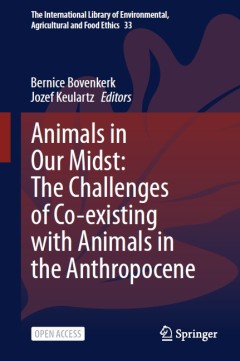
Animals in our midst : the challenges of co-existing with animals in the anth…
This Open Access book brings together authoritative voices in animal and environmental ethics, who address the many different facets of changing human-animal relationships in the Anthropocene. As we are living in complex times, the issue of how to establish meaningful relationships with other animals under Anthropocene conditions needs to be approached from a multitude of angles. This book offe…
- Edition
- -
- ISBN/ISSN
- 9783030635237
- Collation
- xiii, 579p. : ill.
- Series Title
- -
- Call Number
- 179.3 ANI a
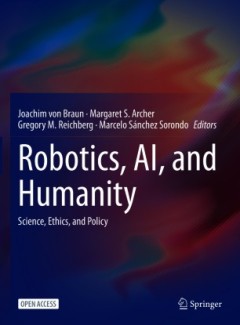
Robotics, AI, and humanity : science, ethics, and policy
This open access book examines recent advances in how artificial intelligence (AI) and robotics have elicited widespread debate over their benefits and drawbacks for humanity. The emergent technologies have for instance implications within medicine and health care, employment, transport, manufacturing, agriculture, and armed conflict. While there has been considerable attention devoted to robot…
- Edition
- -
- ISBN/ISSN
- 9783030541736
- Collation
- x, 269p. : ill.
- Series Title
- -
- Call Number
- 174.9629892 ROB r
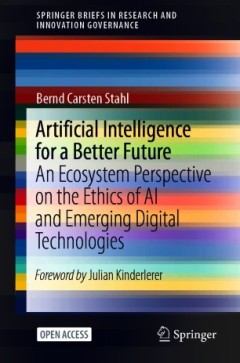
Artificial intelligence for a better future : an ecosystem perspective on the…
This open access book proposes a novel approach to Artificial Intelligence (AI) ethics. AI offers many advantages: better and faster medical diagnoses, improved business processes and efficiency, and the automation of boring work. But undesirable and ethically problematic consequences are possible too: biases and discrimination, breaches of privacy and security, and societal distortions such as…
- Edition
- -
- ISBN/ISSN
- 9783030699789
- Collation
- x, 124p. : ill.
- Series Title
- -
- Call Number
- 174.90063 STA a
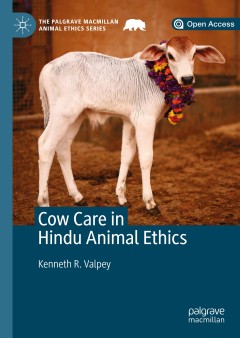
Cow care in Hindu animal ethics
This open access book provides both a broad perspective and a focused examination of cow care as a subject of widespread ethical concern in India, and increasingly in other parts of the world. In the face of what has persisted as a highly charged political issue over cow protection in India, intellectual space must be made to bring the wealth of Indian traditional ethical discourse to bear on t…
- Edition
- -
- ISBN/ISSN
- 9783030284084
- Collation
- xxx, 269p. : ill.
- Series Title
- -
- Call Number
- 179.3 VAL c
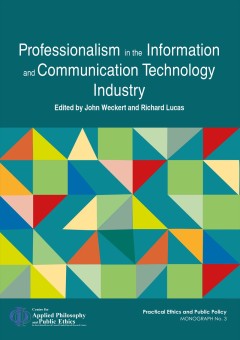
Professionalism in the information and communication technology industry
Professionalism is arguably more important in some occupations than in others. It is vital in some because of the life and death decisions that must be made, for example in medicine. In others the rapidly changing nature of the occupation makes efficient regulation difficult and so the professional behaviour of the practitioners is central to the good functioning of that occupation. The core id…
- Edition
- -
- ISBN/ISSN
- 9781922144447
- Collation
- vii, 372p. : ill.
- Series Title
- -
- Call Number
- 174.93034833 WEC p
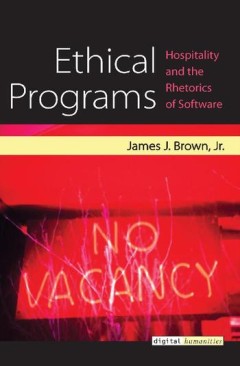
Ethical programs : hospitality and the rhetorics of software
Living in a networked world means never really getting to decide in any thoroughgoing way who or what enters your “space” (your laptop, your iPhone, your thermostat . . . your home). With this as a basic frame-of-reference, James J. Brown’s Ethical Programs examines and explores the rhetorical potential and problems of a hospitality ethos suited to a new era of hosts and guests. Brown rea…
- Edition
- -
- ISBN/ISSN
- 9780472072736
- Collation
- x, 217p. : ill.
- Series Title
- -
- Call Number
- 174.9005 BRO e
 Computer Science, Information & General Works
Computer Science, Information & General Works  Philosophy & Psychology
Philosophy & Psychology  Religion
Religion  Social Sciences
Social Sciences  Language
Language  Pure Science
Pure Science  Applied Sciences
Applied Sciences  Art & Recreation
Art & Recreation  Literature
Literature  History & Geography
History & Geography